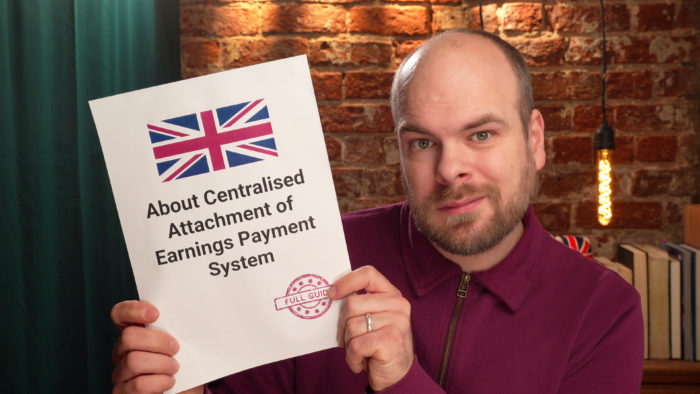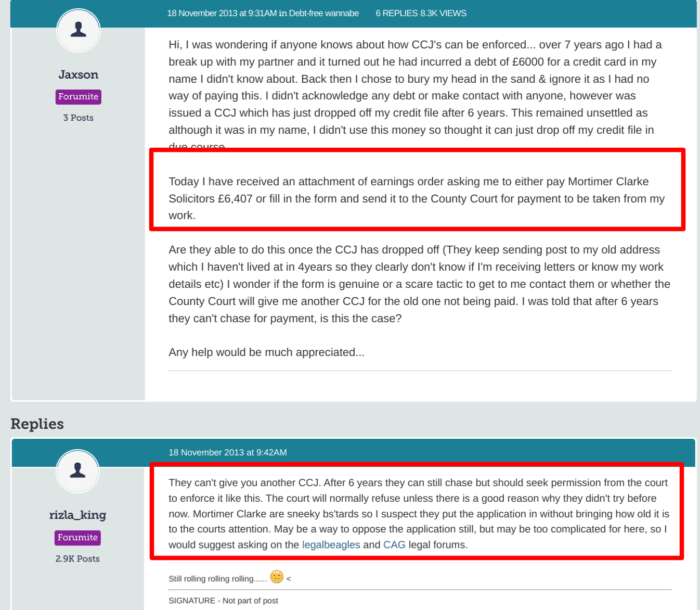About Centralised Attachment of Earnings Payment System (CAPS)
For free & impartial money advice you can visit MoneyHelper. We work with The Debt Advice Service who provide information about your options. This isn’t a full fact-find, some debt solutions may not be suitable in all circumstances, ongoing fees might apply & your credit rating may be affected.

For free & impartial money advice you can visit MoneyHelper. We work with The Debt Advice Service who provide information about your options. This isn’t a full fact-find, some debt solutions may not be suitable in all circumstances, ongoing fees might apply & your credit rating may be affected.
Are you worried because you have been contacted about an unpaid debt? We understand, and we’re here to help. Each month, over 4,600 people come to our website for advice on dealing with courts and debts, so you’re not alone.
In this friendly guide, we’ll explain:
- What the Centralised Attachment of Earnings Payment System (CAPS) is.
- How it works, and when it comes into play.
- How you can deal with it, and even possibly write off some debt.
- Where to get more help, and how to contact CAPS.
We know you may be stressed about not being able to pay a debt. Our team is made up of people who have faced debts and court actions too, so we understand how you feel. We aim to make the process less scary by giving you the facts and advice you need.
Let’s get started.
When Does the Centralised Attachment of Earnings Payment System Come Into Play?
Only certain kinds of debts can become the basis of a centralised attachment of earnings order. And it is your employer who has to handle the administration of deducting payments. Your employer might make deductions for:
- Debts that are covered by a County Court Judgement (CCJ).
- Debt that relates to unpaid maintenance.

How Is a CAPS Order Applied For?
Both your employer and yourself will receive an attachment of earnings order from the court. Your employer must then begin CAPS deductions the next time you are paid (unless this is within 7 days).
Your employer will be told how much you owe, and whether this is a priority order. As well as how much they must deduct from your wages. In some cases, your employer may be asked to pay the court weekly or bi-weekly, even if you are paid monthly.
You are under no obligation to give your employer any details of why the attachment of earnings order has been put in place. Or to divulge any information about how the debt was accrued or information about any more debts that you owe. Unless there is a clause in your employment contract that says you must. Some jobs require this, where the employee is working in a sensitive position and could become compromised due to their debts.
How a debt solution could help
Some debt solutions can:
- Stop nasty calls from creditors
- Freeze interest and charges
- Reduce your monthly payments
A few debt solutions can even result in writing off some of your debt.
Here’s an example:
Situation
| Monthly income | £2,504 |
| Monthly expenses | £2,345 |
| Total debt | £32,049 |
Monthly debt repayments
| Before | £587 |
| After | £158 |
£429 reduction in monthly payments
If you want to learn what debt solutions are available to you, click the button below to get started.
Priority and Non-Priority Orders Explained
The difference between a priority and non-priority order is very easy to explain, as each covers one of the two reasons a CAPS is put in place, thus:
- Priority orders – for unpaid maintenance debts.
- Non-priority orders – for debt that is covered by a County Court Judgement.
The process your employer has to follow to pay for either type of order is the same. In reality, the terms priority and non-priority are of more importance to the court administrators and have almost no impact on the responsibilities of your employer or yourself.
What To Do if Your Circumstances Change
When it comes to a change in circumstances that will have an impact on CAPS deductions, there are a few rules that need to be followed. And all of these actions need to be taken by your employer. Within 10 days of you finishing working for them, they must notify the court. Giving the following information:
- Your name.
- The date you stopped work.
- The name of your new employer (if you told them).
- The order number.
- The court case number.
You don’t need to do anything if you change jobs or stop work. This is the sole responsibility of your employer. However, it might pay to check that your employer understands they have to let the court know you have changed jobs, otherwise you might find you are asked why you have stopped making payments.
Thousands have already tackled their debt
Every day our partners, The Debt Advice Service, help people find out whether they can lower their repayments and finally tackle or write off some of their debt.

Natasha
I’d recommend this firm to anyone struggling with debt – my mind has been put to rest, all is getting sorted.
Reviews shown are for The Debt Advice Service.
What Is Deemed To Be Earnings?
Whether you are bankrupt or not, you can become subject to CAPS. But only your earnings can be impacted, and not all income is classed as earnings. CAPS deductions are only deducted from the following:
- Your salary or wages, as well as any overtime pay, sales commissions or bonuses.
- Compensation payments you receive.
- Your private pension payments.
- Sick pay, including statutory sick pay.
- Maternity, paternity or adoption pay (if contractual).
- Redundancy pay (contractual).
Some income is not classed as earnings, and cannot be subject to CAPS deductions. We have listed these below.
- Any income that comes from overseas.
- Your state benefits such as universal credit.
- Your state pension.
- Tax credits.
- Disability allowance.
- Maternity, paternity or adoption pay (statutory).
- Redundancy pay (statutory).
If you are unsure whether a particular income stream would fall under the deductible earnings category, speak to a financial advisor.
Contact Details for CAPS
If you need to contact the department that runs the CAPS scheme, here are the contact details.
| Email: | [email protected] |
| Telephone: | 0300 123 1058 |
| Opening times: | Monday to Friday 9am to 4pm |
| Address: |
5th Floor, St Katharine’s House 21-27 St Katharine’s Street, NorthamptonNN1 2LH |


